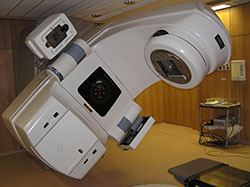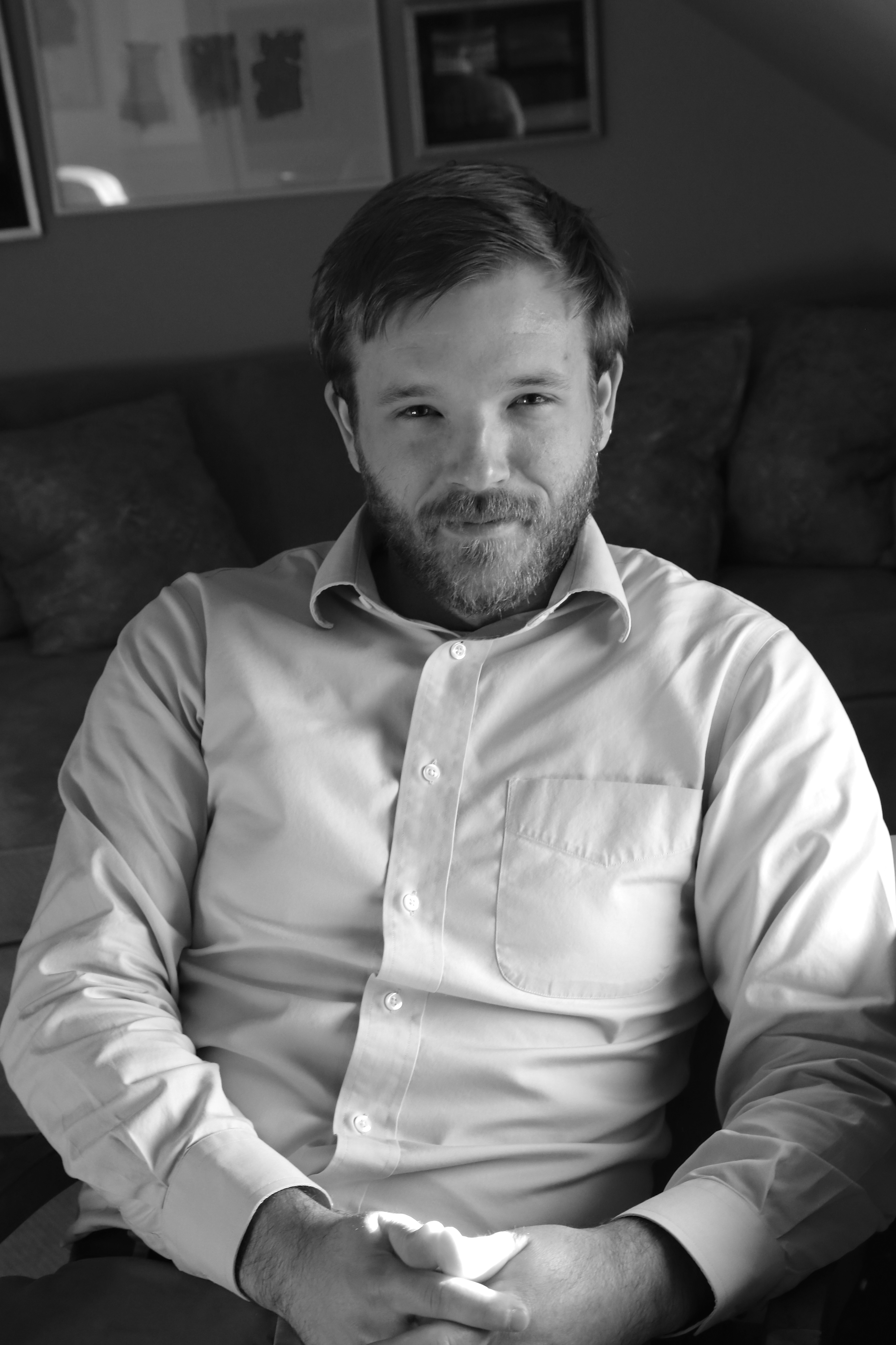Computer Simulator Will Improve Radiation Therapy for Cancer Patients
FAYETTEVILLE, Ark. – Using complex computational algorithms based on repeated sampling, a University of Arkansas graduate student helped spearhead a project to develop a computer simulator that provides customized electron beam tunings for radiation therapy. The research will help cancer centers provide better radiation therapy.
Justin LeBlanc, a Distinguished Doctoral Fellow and doctoral candidate in economics in the Sam M. Walton College of Business, and colleagues developed and verified the simulator and a design process as part of his master’s thesis in physics at Louisiana State University. The study has been published in the Journal of Applied Clinical Medical Physics.
In radiation therapy, linear accelerators deliver highly focused beams of electrons to destroy cancerous cells. The accelerator produces a small, intensely concentrated beam of electrons called a pencil beam. For this to be useful clinically it must be broadened to cover the patient’s tumor. Dual-scattering systems are designed for this purpose. They help ensure the electrons deposit their energy into the patient’s cancerous tissue while sparing surrounding, healthy tissue.
The current approach for designing dual-scattering systems is a conventional, one-size-fits-all standard, because their design proposes a nearly infinite number of solutions for achieving any one facility’s desired specifications.
“Until now, the design process had never been done analytically,” LeBlanc said.
 |
| The research will improve the capabilities of linear accelerators used in radiation therapy for cancer patients. |
The simulator facilitates better design of dual-scattering foil systems. When the geometry of such a system is specified, the simulator allows the user to vary primary and secondary scattering foil material and thickness and to see results in approximately 100 milliseconds, about 10 million times faster than Monte Carlo simulations, which are simulations and computational algorithms that rely on random sampling to obtain results for extremely complex problems that have only numerical solutions.
The rapid design capability allows an initial optimization to be obtained, which can then be refined and verified with subsequent Monte Carlo calculations and measurements. This process can be used to facilitate a better design of dual-scattering foil systems for improved patient treatment.
“The user user-friendly interface and real-time nature of the simulator also make it an effective educational tool for gaining a better understanding of the effects that various system parameters have on dose profiles,” LeBlanc said. “In other words, it will help medical physicists and linear accelerator designers to better understand the physics behind the equipment with which they will be working.”
About the University of Arkansas: The University of Arkansas provides an internationally competitive education for undergraduate and graduate students in more than 200 academic programs. The university contributes new knowledge, economic development, basic and applied research, and creative activity while also providing service to academic and professional disciplines. The Carnegie Foundation classifies the University of Arkansas among only 2 percent of universities in America that have the highest level of research activity. U.S. News & World Report ranks the University of Arkansas among its top American public research universities. Founded in 1871, the University of Arkansas comprises 10 colleges and schools and maintains a low student-to-faculty ratio that promotes personal attention and close mentoring.
Topics
Contacts
Justin LeBlanc, Distinguiushed Doctoral Fellow, Department of Economics
Sam M. Walton College of Business
479-575-4002,
JLeBlanc@walton.uark.edu
Matt McGowan, science and research communications officer
University Relations
479-575-4246,
dmcgowa@uark.edu
Headlines
PetSmart CEO J.K. Symancyk to Speak at Walton College Commencement
J.K. Symancyk is an alumnus of the Sam M. Walton College of Business and serves on the Dean’s Executive Advisory Board.
Faulkner Center, Arkansas PBS Partner to Screen Documentary 'Gospel'
The Faulkner Performing Arts Center will host a screening of Gospel, a documentary exploring the origin of Black spirituality through sermon and song, in partnership with Arkansas PBS at 7:30 p.m. Thursday, May 2.
UAPD Officers Mills and Edwards Honored With New Roles
Veterans of the U of A Police Department, Matt Mills has been promoted to assistant chief, and Crandall Edwards has been promoted to administrative captain.
Community Design Center's Greenway Urbanism Project Wins LIV Hospitality Design Award
"Greenway Urbanism" is one of six urban strategies proposed under the Framework Plan for Cherokee Village, a project that received funding through an Our Town grant from the National Endowment for the Arts.
Spring Bike Drive Refurbishes Old Bikes for New Students
All donated bikes will be given to Pedal It Forward, a local nonprofit that will refurbish your bike and return it to the U of A campus to be gifted to a student in need. Hundreds of students have already benefited.





